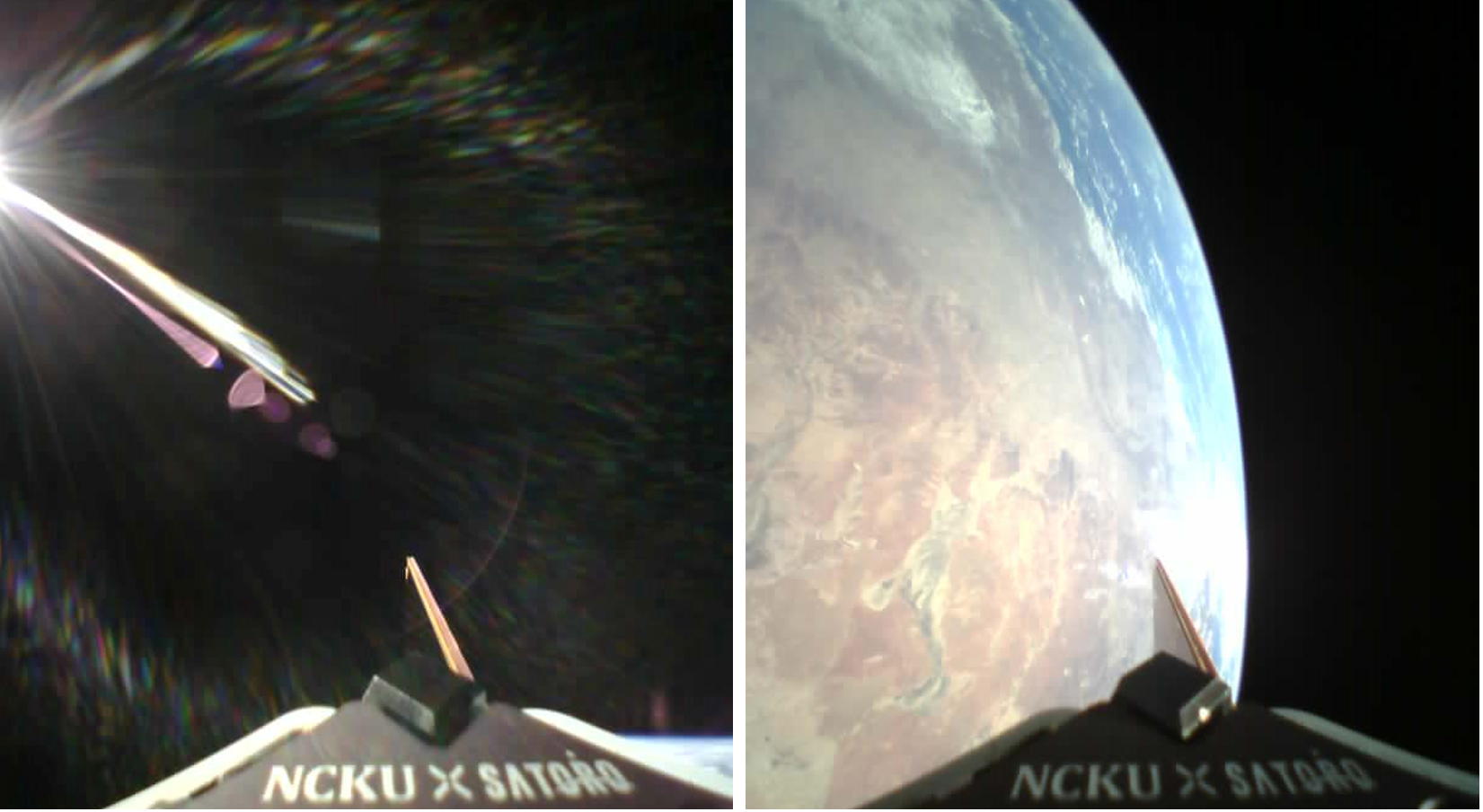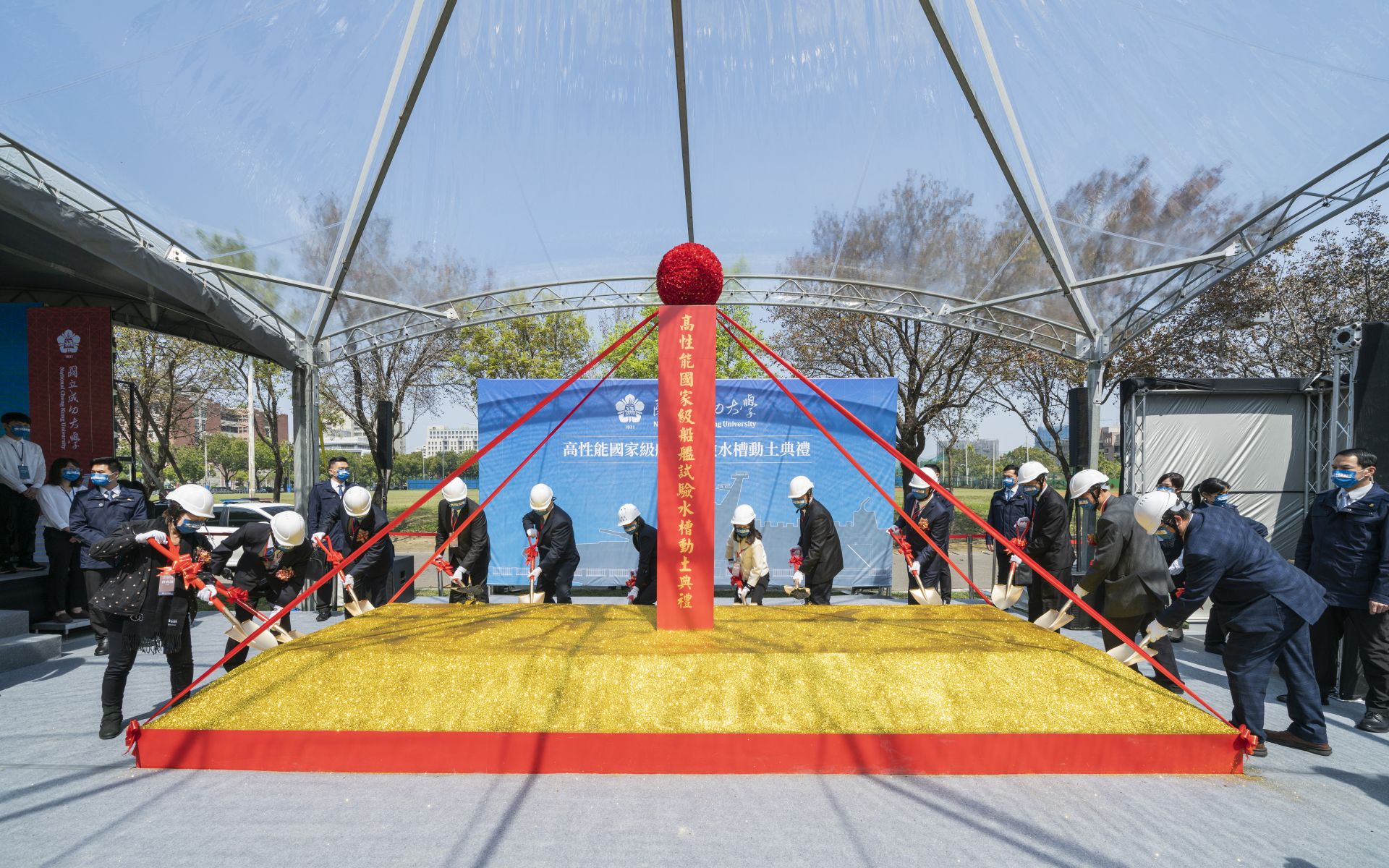Written & Image Credit to Jyh-Ching Juang.
The NCKU Lilium-1 cube satellite (CubeSat) was launched in the early morning of December 2, 2023 by the SpaceX Falcon 9 launcher. The 3U satellite has been thoroughly checked and all functions are normal in the 520 km low Earth orbit (LEO). After one-month operation, the National Cheng Kung University (NCKU) Space Laboratory releases two selfies of the CubeSat. One photo clearly reveals the successful deployment of the solar panel as the satellite is positioned to gather sunlight for charging. Another selfie demonstrates the three-axis stabilization performance with the Australian continent as the background. These are the first series of selfies of Taiwanese satellites ever in space.
The Lilium CubeSat project is sponsored by the National Science and Technology Council (NSTC), Taiwan, to develop and validate key technologies for cube satellites. To this end, the research team, coordinated by Professor Jyh-Ching Juang of the Department of Electrical Engineering, National Cheng Kung University, is constituted of professors and students from NCKU, National Taiwan University, National Taiwan University of Science and Technology, and Tamkang University. Several domestic companies also participate in the project. Two additional CubeSats, Lilium-2 and Lilium-3, will be launched in 2025 to fully verify the objective of the project in developing and demonstrating space communication, intelligent remote sensing, space propulsion, in-orbit deployment, and de-orbit techniques. The successful launch and operation of the Lilium-1 have paved a solid foundation for the project.
In addition to the Lilium-1, NCKU Space Laboratory has developed, launched, and operated several CubeSats. Two years ago, the IRIS-A CubeSat was launched and the satellite had accomplished its objectives in testing satellite-based internet of thing, verifying spaceborne GPS receiver, and taking photos from LEO. After two years of successfully operation, the IRIS-A CubeSat had decayed from its initial 530 km orbit to 490 km in LEO. The 2U IRIS-A CubeSat remains operational and is used as an educational platform. The development and operation of the CubeSats has brought valuable in-orbit data for engineering and scientific research. Moreover, the devoted efforts have resulted in capacity building and talent incubation in space and systems engineering.
The NCKU Lilium-1 cube satellite (CubeSat) was launched in the early morning of December 2, 2023 by the SpaceX Falcon 9 launcher. The 3U satellite has been thoroughly checked and all functions are normal in the 520 km low Earth orbit (LEO). After one-month operation, the National Cheng Kung University (NCKU) Space Laboratory releases two selfies of the CubeSat. One photo clearly reveals the successful deployment of the solar panel as the satellite is positioned to gather sunlight for charging. Another selfie demonstrates the three-axis stabilization performance with the Australian continent as the background. These are the first series of selfies of Taiwanese satellites ever in space.
The Lilium CubeSat project is sponsored by the National Science and Technology Council (NSTC), Taiwan, to develop and validate key technologies for cube satellites. To this end, the research team, coordinated by Professor Jyh-Ching Juang of the Department of Electrical Engineering, National Cheng Kung University, is constituted of professors and students from NCKU, National Taiwan University, National Taiwan University of Science and Technology, and Tamkang University. Several domestic companies also participate in the project. Two additional CubeSats, Lilium-2 and Lilium-3, will be launched in 2025 to fully verify the objective of the project in developing and demonstrating space communication, intelligent remote sensing, space propulsion, in-orbit deployment, and de-orbit techniques. The successful launch and operation of the Lilium-1 have paved a solid foundation for the project.
In addition to the Lilium-1, NCKU Space Laboratory has developed, launched, and operated several CubeSats. Two years ago, the IRIS-A CubeSat was launched and the satellite had accomplished its objectives in testing satellite-based internet of thing, verifying spaceborne GPS receiver, and taking photos from LEO. After two years of successfully operation, the IRIS-A CubeSat had decayed from its initial 530 km orbit to 490 km in LEO. The 2U IRIS-A CubeSat remains operational and is used as an educational platform. The development and operation of the CubeSats has brought valuable in-orbit data for engineering and scientific research. Moreover, the devoted efforts have resulted in capacity building and talent incubation in space and systems engineering.

These are the first series of selfies of Taiwanese satellites ever in space.

Professor Jyh-Ching Juang of the Department of Electrical Engineering, National Cheng Kung University, is constituted of professors and students from NCKU.






















